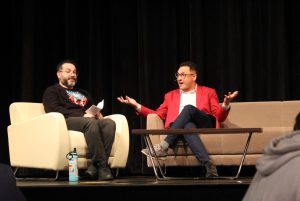NASA indigenous land recognition proposal faces opposition
March 25, 2016
UW-La Crosse’s Student Senate will be seeing a resolution Wednesday, March 30 that hopes to recognize Indigenous land. The Native American Student Association (NASA) and the Joint Multicultural Affairs Committee have been working together to create a statement to be read at the beginning of university-sponsored events. The statement, which was directly written by members of NASA, reads, “We would like to recognize that the University of Wisconsin – La Crosse occupies the land of the Ho Chunk people. Please take a moment to celebrate and honor this ancestral Ho Chunk land, and the sacred lands of all indigenous peoples.”
The authors of the resolution, Rebecca Steck and Anna Razidlo, believe that the statement reaffirms the university’s commitment to diversity and inclusion, would honor indigenous peoples, and educate event attendees. NASA Co-Chair Maddie Johns said the organization got the idea from similar statements read at conferences the organization attended.
Although many campus organizations have shown their support for the resolution, there was still some opposition. Ketura Luginbuhl, Campus Activity Board (CAB) President, said there was a lot of confusion among the general membership of CAB during its first vote on the matter. In order to conduct a more informed vote among CAB members before March 30, CAB invited NASA members to an executive board meeting in order to have an open discussion of the proposal. Others that oppose believe the statement would be too repetitive or that it may offend visitors in attendance at university events. According to co-author of the resolution Rebecca Steck, there were alternative suggestions, such as creating a commemorative plaque in honor of Ho Chunk people instead of reciting the phrase.
Counterarguments to the opposition have concluded that event attendees do not complain about other event rituals, like the national anthem, so the proposed phrase should be able to become part of that routine. “To non-Native students, this may seem unnecessary and unimportant, but it will mean so much to us and all indigenous students and indigenous people in attendance,” says Johns. The members of NASA that created the phrase also believe the phrase is intended to educate, rather than offend, and that a plaque would be too easy to walk past.
Members of Student Senate will see NASA’s resolution for an initial discussion on March 30. Senate will then have a week to make a decision. The official vote on the two-sentence phrase will take place the following Wednesday, April 6.





